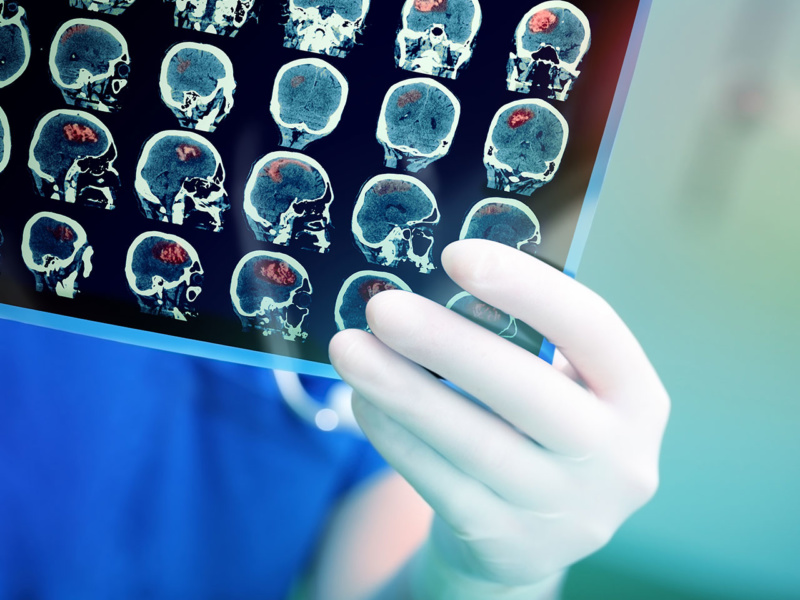A stroke is a serious life-threatening medical condition that occurs when the blood supply to part of the brain is cut off. Like all major organs, the brain needs the oxygen and nutrients provided by blood to function properly. If the supply of blood is restricted or stopped, brain cells begin to die.
There are two main causes of stroke:
- Ischaemic – where the blood supply is stopped because of a blood clot, accounting for 85% of all cases
- Haemorrhagic – where a weakened blood vessel supplying the brain bursts
Early signs of a stroke
FAST test – Face, Arms, Speech, Time
- Can the person smile? Has the FACE fallen to one side?
- Can the person raise both ARMS and keep them there?
- Can the person SPEAK clearly and understand what you say? Is their speech slurred?
- Remember, TIME is critical. Get to the hospital and do not delay.
Other signs
- Sudden weakness or numbness on one side of the body, including legs, hands or feet
- Difficulty finding words or speaking in clear sentences
- Sudden blurred vision or loss of sight in one or both eyes
- Sudden memory loss or confusion, and dizziness
- A sudden fall
- A sudden, severe headache
- Problems with balance and co-ordination
- Difficulty swallowing
- Loss of consciousness
Reduce the risks of a stroke
- Eating a healthy diet
- Maintain healthy weight
- Taking regular exercise
- Drinking alcohol in moderation
- Not smoking
- Maintain healthy levels of blood pressure
- Maintain healthy cholesterol levels
- Take serious action if you experience a Transient Ischemic Attach (TIA) or ministroke
Transient ischemic attacks
A TIA or ministroke is a temporary experience of stroke-like symptoms. It usually only lasts a few minutes and typically doesn’t cause permanent damage. A TIA episode should be treated as a both a warning of a full stroke and an opportunity to prevent that happening. Approximately a third of people who have a TIA will later have a full stroke, with about 50% occurring within a year of the TIA. It’s therefore an important indication to take serious action.
Activities
- Get moving
- Walking
- Gardening
- Swimming
- Dancing
- Cycling
- Aerobics
- Walking football
Useful links
- www.stroke.org.uk
- www.nhs.uk/conditions/stroke
- www.bhf.org.uk/heart-health/conditions/stroke
- https://strokefoundation.org.au/
- https://www.stroke.org/
